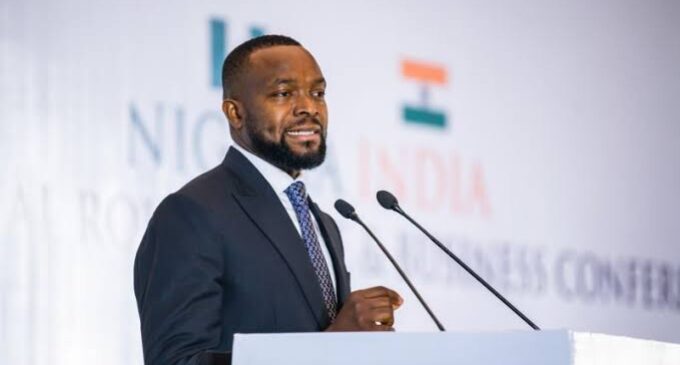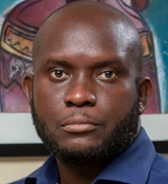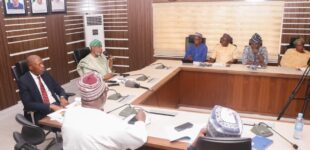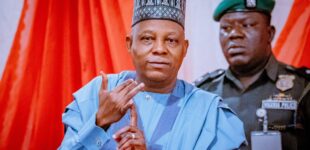Bosun Tijani, Nigeria and Metaverse development

“We want to lead the African continent in digital technology. We are ready to cooperate on technological advancements. It is the only way to go. We need a collaboration that will be a win-win for all,” (President Tinubu to Meta, March 2024).
The recent visit by Nick Clegg may provide Nigeria with an opportunity it has always desired- an active role in the development of globally relevant technology. The visit by Clegg, former UK Deputy Prime Minister and President of Global Affairs for Meta, to President Tinubu on March 21, 2024, facilitated by Olatunbosun (Bosun) Tijani, Nigeria’s Minister of Communication, Innovation & Digital Economy, also provides opportunities for the African technology leadership and the win-win situation desired by President Tinubu, as well as inclusive and sustainable development for Nigeria, especially through the Metaverse.
What then is the Metaverse? The metaverse can be described as the next iteration of the internet, or the ‘new internet’. Meta, the parent company of Facebook, WhatsApp and Instagram, is leading other stakeholders, that now include Apple Inc, in the development of the metaverse. While the estimated period for completion of development is ten years from now, some early versions of the metaverse are currently in use. They include the immersive 3D Virtual Reality (VR), 2D Augmented Reality (AR), Mixed Reality (MR) and Artificial Intelligence (AI).
By some estimates, the metaverse is expected to contribute $3trillion to global gross domestic product (GDP), and $400bn to the GDP of Africa, the Middle East and Turkey.
For the West African subregion, a recent report by Deloitte indicates $9.2 – $17.3 billion for Nigeria, $2.3 – $4.2 billion for Cote d’Ivoire, $1.8 – $3.4 billion for Ghana and $0.9 – $1.7 billion for Senegal, as estimated GDP impact of metaverse technologies on the economies of these countries.
Though Nick Clegg had indicated that eligible content creators in Nigeria will have expanded monetisation features on Facebook and Instagram by June 2024, the more adroit opportunity that perhaps was not shared, was that the development stage of the metaverse provides an opportunity for Nigeria to play inclusive and active roles in the development of the new internet. This development stage of the metaverse also strategically aligns in principle with the ‘Technology Manufacturing’ objective of President Tinubu, as contained in the ‘Renewed Hope’ policy document for his administration. Page 51 of the policy document, under the ‘Digital Economy’ section, emphasizes the need for harnessing economic opportunities in the digital economy through domestic manufacturing.
How then can Bosun Tijani go beyond the content monetisation token offered Nigeria by Nick Clegg, and not only ensure that the African technology leadership and win-win technological advancement desired by President Tinubu is met, but also potentially meet some performance indicators as may be set by Tinubu’s Policy Coordination, Evaluation, Monitoring, and Delivery Unit?
The answer may be situated in adopting approaches for participatory development of the metaverse in Nigeria. Bosun Tijani has as part of the flagship policies by his ministry, unveiled the 3 Million Technical Talent (3MTT) programme in October 2023. The 3MTT programme is designed to develop and train a latent pool of technical talent in Nigeria, in accordance with President Tinubu’s vision of creating 2 million digital jobs by 2025. This pool of technical talent should make Nigeria a net talent exporter, and also power the country’s digital economy.
As impressive as the objectives of the 3MTT are, the dynamics and development geopolitics of global technology demand that Nigeria plays more strategic and integral roles in the development of technology, beyond training in existing technologies and exporting talent. And this is where the establishment of a ‘Metaverse Academy’ in Nigeria comes in. Already, Metaverse Academies have been established in Paris/France, Riyadh/Saudi Arabia, Zurich/Switzerland with considerable support from the host governments. That France is a leading country in AI, one of the parts of the metaverse, while Saudi Arabia has similar tech leadership aspirations as contained in the ‘Vision 2030’ of Crown Prince and Prime Minister Mohammed bin Salman bin Abdulaziz, helps situate the strategic moves being made by other countries outside of the United States, in the race for active involvement and leadership in technological development.
And active participation in the development of the metaverse will require that such an academy for Nigeria be located in an area of research excellence, so that the trainings that go on are not just a replica of existing knowledge, but also an opportunity for Nigeria to make research-based innovations towards the development of this new and evolving technology. This means that universities with highly-indexed publications and research outcomes should be given the most consideration. Perhaps, institutions such as the African University of Science and Technology, with its Pan-African mandate and linkages, would be ideal. This will facilitate inclusive research from the continent’s academic community.
Another way Bosun Tijani can optimize cost and returns in the establishment of a Metaverse Academy in Nigeria, is by making the proposed academy a sub-regional effort. With Abuja, Nigeria as defacto headquarters of West Africa, due to headquarters of the Economic Community of West African States (ECOWAS), which is the African Union recognized regional economic community for West Africa being located in the city, the proposed academy can be designed for West Africa, allowing the ECOWAS Parliament and ECOWAS Commission, both situated in the city and having digital economy responsibilities for the subregion, efficient and effective opportunities to contribute, participate, monitor and evaluate and learn, through the proposed metaverse academy. That way, West African and African governments are better convinced on the need to invest in the metaverse, and the returns on such investment. A Metaverse Academy in Nigeria also enables more inclusion of West Africans in the development of the technology, as relevant trainings that include AR, VR, MR and AI are more readily provided, effectively ensuring that skilled techies and stakeholders from the subregion have the requisite training and capacity to be a part of the development of the metaverse.
Investing in the metaverse can support Nigeria in addressing some of its socioeconomic developmental challenges, just as Nigeria has reaped the benefits of technology diffusion in communication, public finance and economic planning.
The metaverse can support the acute need for cost-effective training and retaining of medical professionals, in a part of the world with poor healthcare system rankings according to the World Health Organisation.
In West Africa, the ratio of doctors to population is 1.74 to 10,000, compared to 35 per 10,000 in Organisation for Economic Co-operation and Development (OECD) countries, while many of the countries in the subregion have less than 1 doctor to 10,000 people, and over half of the countries actually having less than 10 doctors to 100,000 inhabitants, when social data is further assessed. The effects of ‘japa’ syndrome on Nigeria’s healthcare system is well known.
Metaverse platforms such as Edverse, can significantly enable increased access to good education, in the only region of the world where the number of out-of-school children is increasing, according to a 2022 United Nations Educational, Scientific, and Cultural Organization (UNESCO) report. The report indicates that Sub-Saharan Africa is the region of the world with most out-of-school numbers at 98 million, with West and Central Africa accounting for 57 million or 24.1 percent of all the 236 million out-of-school worldwide, and 20 million of them in Nigeria. More than half of all children and adolescents in Burkina Faso, Mali, Niger and Chad lack access to education, due largely to insecurity. The interconnected nature of access to education with security should increase the return on any investment made by sub-regional governments in the metaverse, especially if the technology can also enhance security.
While a combination of political and social factors has made Nigeria and many West African countries fragile and increasingly insecure, economic constraints and technological limitations also mean that the foreign trainings and support they require to address state fragility, are largely inaccessible. The metaverse has shown good prospects for cost-effective simulated security trainings that can be deployed and modified with research, to support combat efforts in addressing the asymmetrical nature of insecurity in the subregion. The Immersive in Barracks Virtual Training (IBVT) used by the British Army, is an example of such technology that also enhances state sovereignty, and enables governments to effectively and efficiently perform their primary responsibility- which is the security of lives and property.
With food security being a critical part of security, it is essential to highlight the advantages of the metaverse to agricultural productivity and food security, in a part of the world with relatively high levels of food insecurity. Both FarmVR, and the Agriscience Metaverse Academy promoted by the University of Tennessee Institute of Agriculture, are examples of what the metaverse can offer agriculture in research and technology that increase agriculture yield, reduce waste, support pest control, enable smart farming and enhance productivity. They also highlight the need for co-locationing within research universities.
Governments of Nigeria and the region can utilize the technology in further digitizing and optimizing tax collection, while raising tax-to-GDP rates from the average of 14.36 percent in the subregion, to about 33 percent in OECD countries. This should increase much needed revenue for public goods, and also the formal sector. An increase in the formal sector of the economy will reduce the cumbersome informal sector, which the World Economic Forum estimates to account for approximately 50 percent of national output, over 80 percent of employment, and 90 percent of new jobs in West Africa. Precision development planning is therefore facilitated, for better governance that meets the sustainable development goals.
From an international development perspective, there are many who posit that Africa was not an inclusive part and optimal beneficiary of the three previous industrial revolutions. The emerging metaverse therefore provides a feasible option for appropriate inclusive industrial engagement, as well as equity, voice and expression in the fourth industrial revolution. Being involved in its research and development ensures that the metaverse is also suited to Nigeria needs, which prevents scenarios where companies will ‘release monetisation’, or future pleas and conferences for ‘technology transfer’- which hardly ever happens.
The development perspective also necessitates more clarity and strategic perception. The monetisation benefits that will be available to Nigerian content creators on Meta platforms from June 2024, has been available to content creators in America, Australia, Canada and South Korea through ‘Ads on Reels’, since 2023. There are also five other African countries where such benefits will be available from June 2024. Therefore, though these benefits are appreciated, their strategic worth may not be as high as imagined. The subtle focus that Nick Clegg gave to the security and optimization of Meta’s 45,000km subsea cables, which landed in Lagos and Uyo in February 2024, is a good pointer to the adroitness of Meta’s negotiation strategy.
While the enhanced connectivity and other benefits of the subsea cable, which is sunk by 50 percent more under the seabed and therefore less susceptible to breaches and disruption are obvious to Nigeria, there is no doubt that Meta stands to gain a lot more from optimizing the data trove that will be available to the company, especially in an age where data has become more valuable than oil. Facilitating increased Nigerian participation in the development of the metaverse therefore becomes appropriate and symbiotic compensation for Nigeria in its negotiations with Meta.
As technology plays a key role in global leadership and power, serious countries take technology seriously. Past and present Nigerian leaders have always desired that Nigeria and Africa play an active role in technology development, not just consumption. Nnamdi Azikiwe (Great Zik of Africa), Nigeria’s first indigenous president, conceptualized such as ‘to restore the dignity of (black) man’. The ongoing development of the metaverse- the new internet, provides such opportunity for Nigeria, especially in this fourth industrial revolution. Will Bosun Tijani mainstream Nigeria in the development of the metaverse, and restore the dignity of man?
Dr. Uwanaka writes from African University of Science and Technology, Abuja. [email protected]
Views expressed by contributors are strictly personal and not of TheCable.
















There are no comments at the moment, do you want to add one?
Write a comment